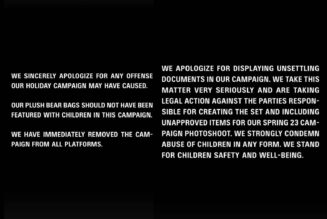
Jesus says, “you are my friends if you do what I command” (John 15:14). Which implies that those who don’t do what Jesus commands are not friends of his, that is they lack intimacy with our Lord. This is very important. Disobedience to God leads to a breaking in our relationship with Jesus. I don’t know many Catholic leaders or disciples who argue with this, but there are many who argue how obedience to God is lived out. As Catholics we do NOT advocate a blind obedience to human authority. Still, Catholics aren’t a magisterium unto themselves and herein lies a big part of our modern issue. After God, who am I supposed to be obedient to and what does obedience entail? Furthermore, what are the implications of the answers to these questions in my relationship with God and how I evangelize others?
OBEDIENCE IS NOT A DIRTY WORD
Obedience means to “listen to” or “accept guidance”. Jesus and the Catholic Church have always taught that one person is not an authority unto themselves, but are granted authority from God. Even Jesus appeals to the Father, his works, and the Spirit, when he talks about the authority he wields. To submit to God is not to go blindly into faith. Rather, it is to say that we are not God, do not know everything, and to humble ourselves before the all-knowing and all-powerful one that can save us.
This is good for us, just as being obedient to proper human authorities is good for us.
If there is a defining point of Catholicism it is the authority the Church teaches with, in the magisterium, the Pope and Bishops. We owe them our loyalty and devotion, because God has instilled in them the power to protect the Church from teaching error.
Not you.
Not me.
Not your favorite Catholic commentator or YouTube personality or speaker or pundit.
Jesus gave true spiritual authority to the Pope and the Bishops, even when we don’t like what they have to say.
What we are responsible for is our obedience to this God-given authority. This does not mean that if our Bishop told us to do something contrary to our conscience or God’s laws that we have to do it. But, it does mean that who we listen to, who we submit our faith to, who we allow to lead us, who we see as authoritative will be answered for at some point. We are responsible for these decisions, not those who are in authority over us. Only our own. Yes, we might have issues with some decisions of our leaders, but how we react to those decisions is what we are responsible for. Richard John Neuhaus put it this way:
“I may not understand an authoritative teaching of the Magisterium, I may have difficulties with a teaching, but, as Newman understood, a thousand difficulties do not add up to a doubt, never mind a rejection. I may think a teaching is inadequately expressed, and pray and work for its more adequate expression in the future. But, given a decision between what I think the Church should teach and what the Church in fact does teach, I decide for the Church. I decide freely and rationally¯because God has promised the apostolic leadership of the Church guidance and charisms that He has not promised me; because I think the Magisterium just may understand some things that I don’t; because I know for sure that, in the larger picture of history, the witness of the Catholic Church is immeasurably more important than anything I might think or say. In short, I obey.” (I encourage you to read the entire article)
Thus a proper understanding of how we are to obey our Catholic leaders is a testing of our virtue. Obedience is not a dirty word, but a beautiful one. One that is closely tied to the other virtues of humility, faith, love, and prudence.
THE CHALLENGES
The Catechism says that obedience to rightful authorities is our duty:
“The duty of obedience requires all to give due honor to authority and to treat those who are charged to exercise it with respect, and, insofar as it is deserved, with gratitude and good-will.” (CCC 1900)
We will all have some challenges in being obedient. For some it will be moral issues. For some particular doctrines they struggle with. For some it will be a particular person in authority over them. Regardless, we have to take these issues to prayer…not the internet. When we do start to proclaim such struggles to the wider community of non-believers, we can sabotage our evangelization.
For instance, I will argue for the merits of coffee, queso, and bourbon. But I dislike beets, cheap yard equipment, and fire ants. It is natural to have an opinion and bias for some things and against others. Still, as Christian disciples we are called to something better than just living with our bias, especially when there are eternal consequences. We are called to submit our bias and our problems to our Lord and allow him to sift through it to see where we are right and where we are wrong. Even further, Catholic leaders are held to a higher standard (rightfully so) and should also help those that are struggling themselves with their bias.
The question we need to answer is – when does a bias turn unhealthy for a Catholic disciple? Here are some signs of an unhealthy disobedience or bias:
1 – Every opinion is an opportunity to find an enemy or an ally. Rather than allowing a differing opinion (even polarizing ones) to challenge you or seeing them as an opportunity to understand where others are coming from, you feel the need to take a stand and react. This can become unhealthy, because when every opinion needs a reaction, every person behind the opinion has the potential to be an enemy. This is magnified in our age of social media hot takes. Where I fear many don’t realize they may be putting their own souls in danger more often than they realize.
2 – Every Catholic leader, group, etc is labeled and placed into a good or bad category. This could be political (right or left) or with a label (progressive, traditional, conservative, liberal, etc). No matter how you assign them, they are grouped with others and you think you know where they are coming from. Once you assign them a label / category, you can either listen intently to them (if they agree with you – aka confirmation bias) or dismiss them (because they disagree with you). This is toxic. You have allowed yourself to let a toxic Catholic echo chamber determine your narrow way of seeing others.
3 – You are not in the heart of the Church, but on an extreme side or the other. The poles are always the coldest place for a reason. But, to be in the heart of the Church means your own heart can remain warm and loving to others. This doesn’t mean you don’t take a stand on things that need to be stood up for. Rather, it means that you are resting in the heart of Catholicism. A Catholicism which isn’t defined by you or I, but by God.
4 – You have a DIY magisterium that includes a select few Bishops, clergy, and lay leaders that fit your views. Maybe they speak about problems you want spoken about. Maybe they challenge things you believe need to be challenged. Still, you have narrowed those who have authority over you to a select few. This may even mean that those with real spiritual authority in your life (real = authority that God has given others, not that you have assigned yourself) are ignored. Your pastor. Your Bishop. Your Pope. Nevermind those men…you have selected your own Magisterium, a DIY one. This is a dangerous place to be. Maybe your favorite Catholic leaders / commentators seem angry, dismissive of others, or are monetizing Catholic angst. They may make themselves out to be the arbiter of the “real truth” about your favorite issues, rather than the Magisterium of the Church. Finally, they have incentivized all of these things and sometimes monetized them. Division, angst, disagreement, and name-calling are their fruits, not unity, peace, empathy, and charity. Red flags and warning lights should be going off in your head/heart if this is the case.
With all this in mind, we can easily see how a DIY magisterium can sabotage our evangelization. Our opinions become the gospel. Our winning an argument trumps winning a soul. Our proclamation of truth is due to pride not love. Oh Lord, forgive us!
WHAT TO DO?
So, what can we do to regain our spiritual, emotional, and communal health? Here are a few suggestions.
- Realize that listening and understanding others does not necessitate agreement or acceptance.
- Do your best to treat others as you would want to be treated or even better as God would have you treat them.
- If you struggle to be obedient to a Church teaching, a legitimate authority, etc – then make sure you are praying about these issues. Be prudent how you spread such struggles.
- Look for the good in others. God made them with good in them, regardless of their opinions and lifestyle. Their very being is good. Try to see this.
- Love those that don’t deserve it. Mercy is always in need.
- Be obedient to those who have true spiritual authority over you.
- Try to avoid hot takes and reactions on social media.
- Remember that there is a human being behind every opinion. Your soul and their soul are more important than you winning an argument.
- Forgive others and ask for forgiveness when you need to. Reconciliation takes courage.
- Allow room for others to be imperfect, then love them anyway.
- There are times to be silent and times to speak up. But, when we do speak up, how you state a truth may be as important as stating it.
- Understand when your inner peace is out of whack and why. Talk to Jesus about it in prayer. Guard your peace, because you are the custodian of it and nobody can take it away, unless you allow them to.
“What embitters the world is not excess of criticism, but an absence of self-criticism.” -GK Chesterton
Join Our Telegram Group : Salvation & Prosperity








